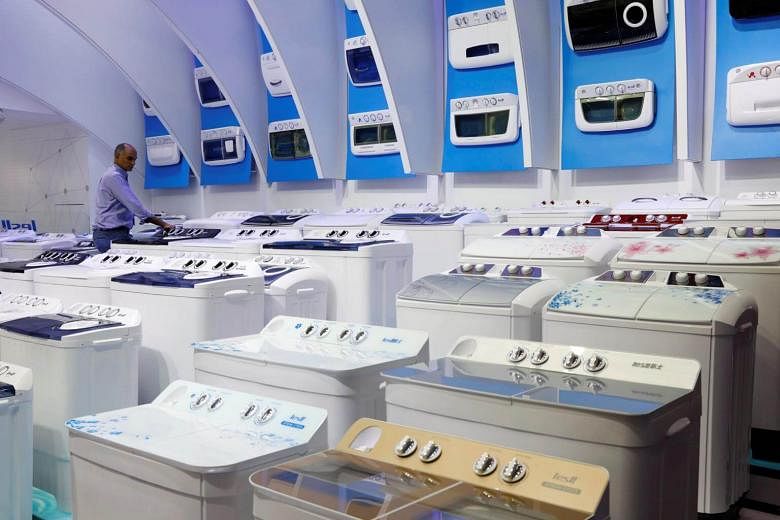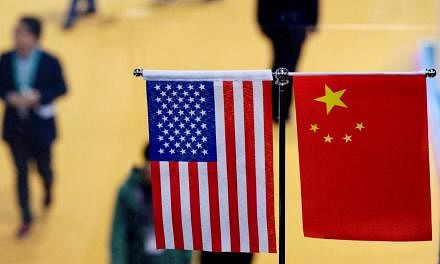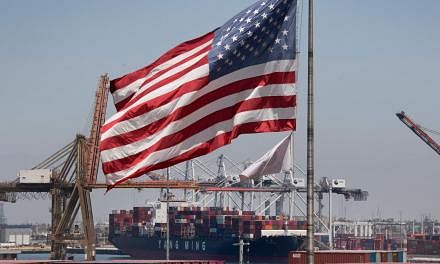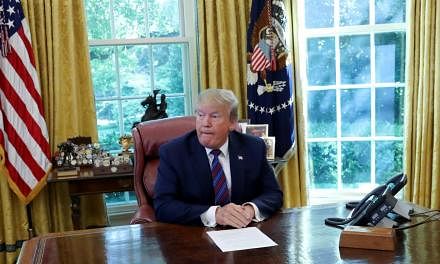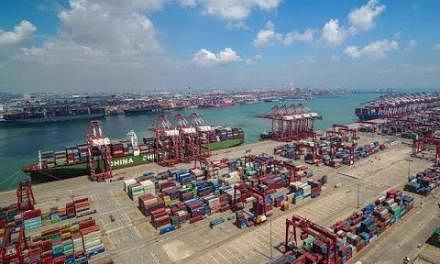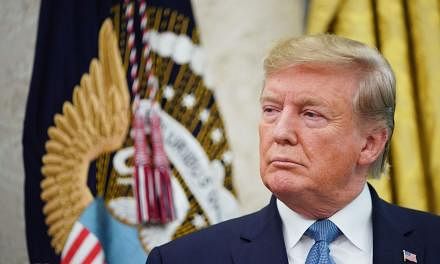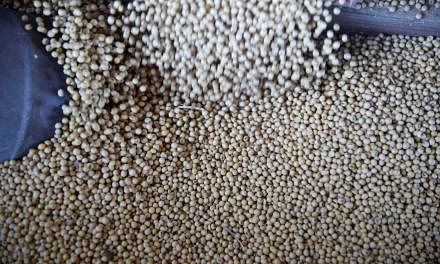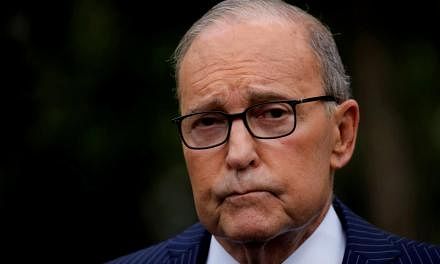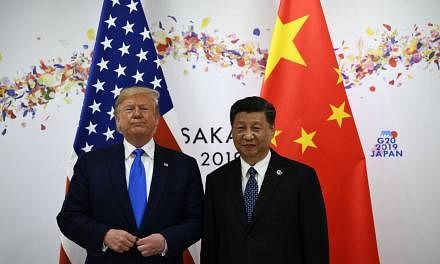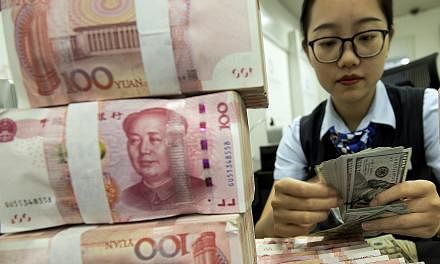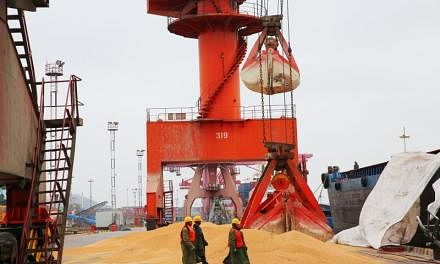WASHINGTON • The Trump administration seems confident that US consumers will not feel pain from its escalating trade war with China.
But a pain-free trade war with China is nearly impossible. For US consumers, prices have already risen on some products that the administration targeted for tariffs this year - most notably, washing machines, which were subjected to steep tariffs in January.
The administration has thus far devised such tariffs to minimise sticker shock on retail store shelves for US consumers. The list of imports set to be "tariffed", as President Donald Trump proclaimed on Monday, still does not include T-shirts, smartphones or many other popular products that US stores import from China.
The US$200 billion (S$274 billion) list unveiled on Monday will start with a tax of 10 per cent and rise to 25 per cent in the new year, a move that should mute the effect of this round of tariffs on holiday shoppers.
Next year though, those products will almost certainly grow noticeably more expensive.
China has already vowed to retaliate, raising the possibility Mr Trump will announce, as soon as this week, that he plans to impose tariffs on another US$267 billion worth of Chinese imports - basically, everything Americans buy from their largest trading partner.
"China has been taking advantage of the United States for a long time, and that's not happening any more," Mr Trump said at a news conference on Tuesday. "We can't let that happen."
Tariffs are ultimately a tax on businesses and consumers, and with each new round, the administration is bringing them closer to home for the typical American.
Tariffs on thousands of products are "death by a thousand cuts", said Mr David French, senior vice-president for government relations for the National Retail Federation, which opposes the administration's approach. "In the aggregate, household budgets will feel the impact."
In June, the Trump administration said talks to change China's trade behaviour - which had spanned decades - were going nowhere and announced duties on US$50 billion worth of Chinese imports. The first round was intended to minimise pain on US consumers: Chinese aircraft engine parts, bulldozers, ball bearings, motorcycles, and industrial and agricultural machinery were among the products targeted initially.
China hit back with tariffs of its own on US$50 billion worth of US products and focused on the agriculture sector - punishing industries whose workers largely supported Mr Trump.
Things have gone downhill from there. Mr Trump said he would impose tariffs on US$200 billion worth of Chinese products, including consumer items such as food, tools, housewares and some, but not all, electronics.
The initial effect of the new US$200 billion round of tariffs will be felt just ahead of the holiday shopping season in the US.
Higher prices for imported materials such as cotton, nylon, polyester and yarn mean that clothing companies will have to pass additional costs on to consumers.
Then there are accessories. The tariffs will apply to imported purses, golf bags, ski gloves and mittens.
Retailers are not sure how fast the price increases will make their way to store shelves, but they are bracing themselves for the worst.
Mr French, of the retail federation, said many buyers are more likely to see big price effects next year than during the holidays.
Food could be an exception, and consumers could start to see higher prices in grocery aisles. A wide variety of fish, as well as nuts, fruit, vegetables, rice and cereal did not escape the tariffs.
Mr Trump is not done punishing China and has threatened to tax another US$267 billion worth of goods if China retaliates against the US - which would mean America taxes nearly everything that enters from China.
On Tuesday, China said it would impose tariffs of its own on an additional US$60 billion of US goods.
Businesses are bracing themselves for an unending trade fight. They are not exactly sure how it will affect prices, but they do not believe it will be helpful.
"In some cases, you're not going to see those costs absorbed, and they're going to get passed on. In some cases, we're going to absorb it where we can," the chief executive of Macy's, Mr Jeff Gennette, told CNBC this week. "We're going to see how the customer votes on this."
Tariffs tend to increase consumer prices, but analysts say the increase in prices from Mr Trump's tariffs is likely to be small, at least for now.
Analysts also expect a small reduction in economic growth.
Economists at JPMorgan Chase estimated economic output would fall by about 0.1 percentage point.
NYTIMES
